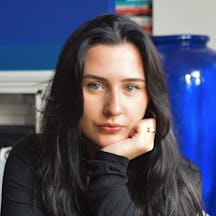There was plenty 20-something Adele could teach 80-something Tony about smartphones, but what could Tony teach Adele about digital inclusion? Adele Walton reveals how an amusing ad in her local paper gifted her a new friendship and fuelled a determination to breach the UK’s digital divide. Here she argues why internet access is a public health issue we should all care about.
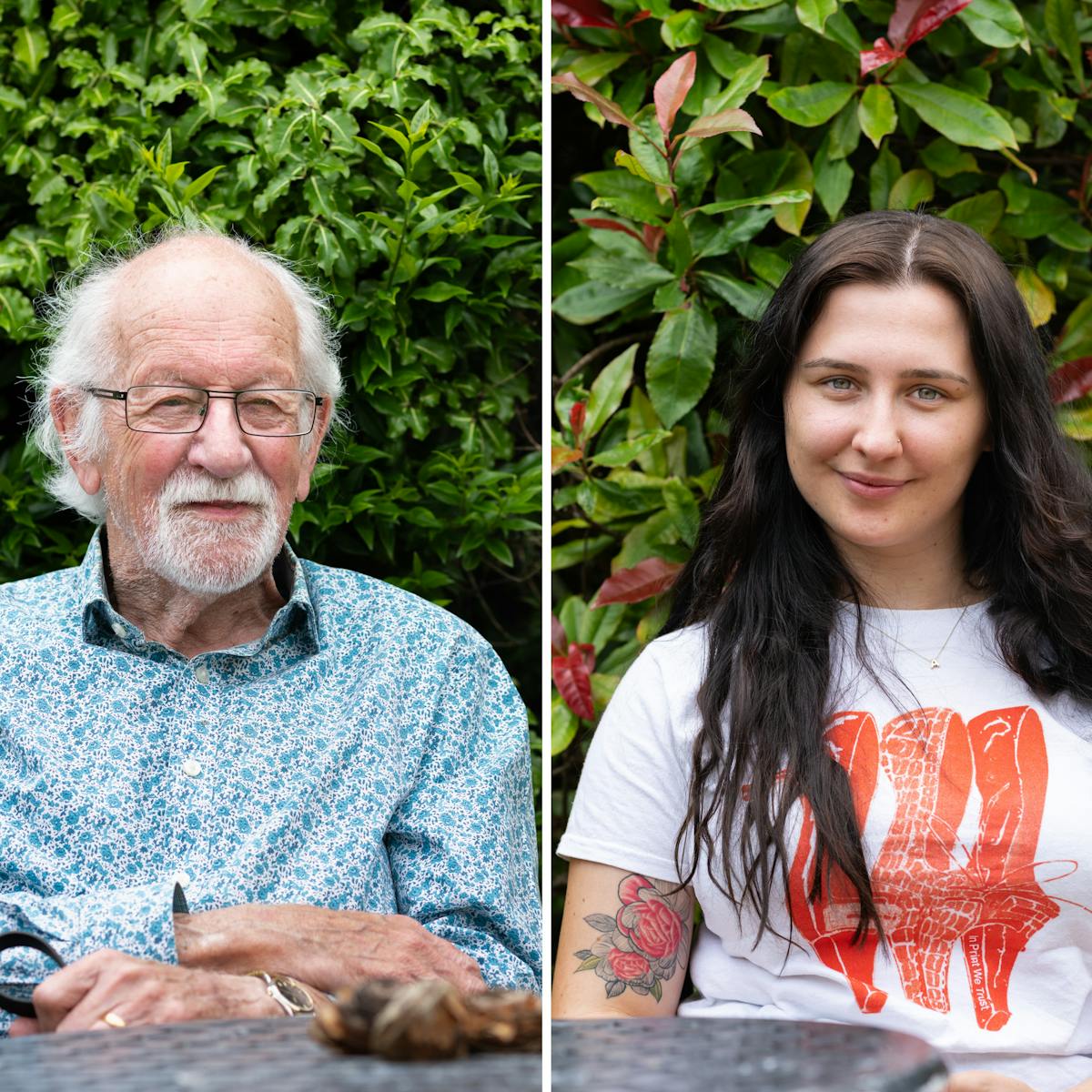
The advert in my local newsletter read, “Smartphone tuition required by intelligent pensioner.” I was taken aback – to me, using a smartphone comes almost naturally.
But the intelligent pensioner’s humorous tone attracted me, and I felt that if anyone could teach them how to use their phone, it would be me. I called the landline number included in the ad and left a message.
Within a day, Tony had been in touch to arrange our first meeting. Later that week, I walked to his flat in sheltered accommodation. He made me a cup of tea and handed me his phone. Tony revealed he’d been on a monthly contract for over a year, yet still didn’t know how to use it.
“I came away with a smartphone – no instructions. I didn’t even know how to receive a call or switch it on and off. Every now and then I went back to Tesco to ask if they could show me how to use it, and they did it willingly, but I wasn’t receptive.”
I was determined to help him learn whatever he wanted to know.
Tony is unique but his experiences with tech are not. It’s thought that 5.3 million people in the UK lack “essential digital skills for everyday life”, while Age UK has estimated that 40 per cent of over-75s don’t use the internet and are struggling to access basic services as a result.
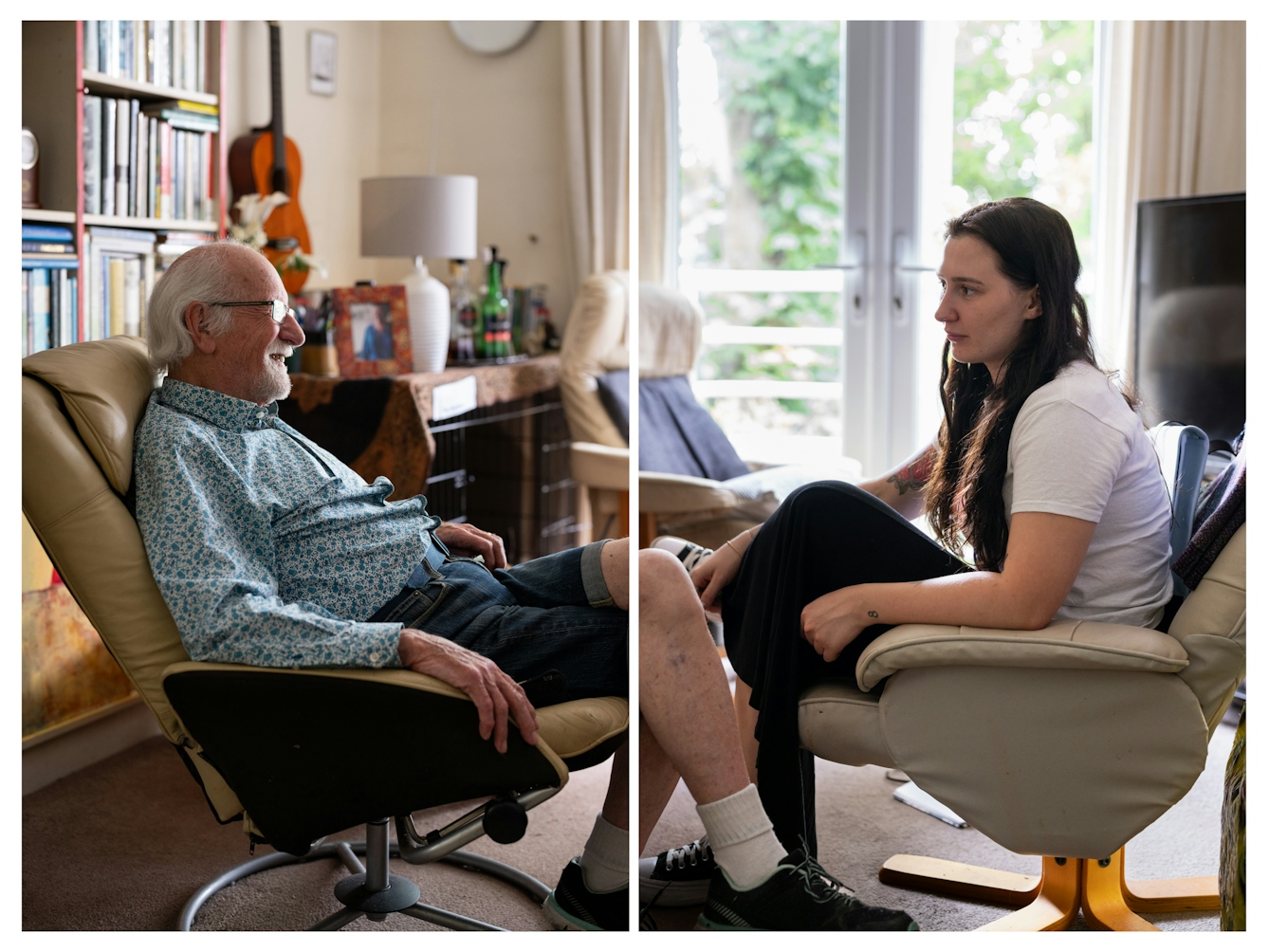
“Within a day, Tony had been in touch to arrange our first meeting. Later that week, I walked to his flat in sheltered accommodation.”
This digital divide is reinforced by the common assumption that digital skills are innate. Most people teach themselves how to use the devices they own, but those who can’t access the latest tech, or struggle to learn new skills, are being left behind.
“Almost every part of our lives is digital in some way, so for any group in society to be unable to access the internet or understand how this technology works is a serious problem,” says James Tweed.
James is the founder of Coracle, a digital learning company that provides inmates at 50 prisons across England and Wales with access to secure laptops in their cells. He believes that digital skills are vital: “Digital exclusion can have a terrible impact on mental wellbeing, health, and opportunities. On the flipside, when someone does learn basic skills, their whole outlook can be transformed and everyone in society benefits.”
Unlocking digital culture
Now retired, Tony worked as a teacher and publicist. He plays guitar, reads books and has a passion for all things educational. “When I bought the phone, I was told it’s really simple, you'll pick it up,” he says. But, aged 86 and recently diagnosed with Parkinson’s, he found that using a smartphone felt anything but simple. When I met him, Tony couldn’t even switch it on.
We arranged to have weekly, hour-long meetings. When I arrived each week, Tony would have a list of aims for the session ready in his notebook. Things like how to take a photo of his greyhound, Kiki, make a call, or send a text.
Tony revealed that he was frustrated with how antisocial technology has made people. He was fed up with seeing everyone on the bus looking down in a trance-like state. So, while he wanted to benefit practically from having a smartphone, it was clear he wasn’t interested in spending large amounts of time on it.
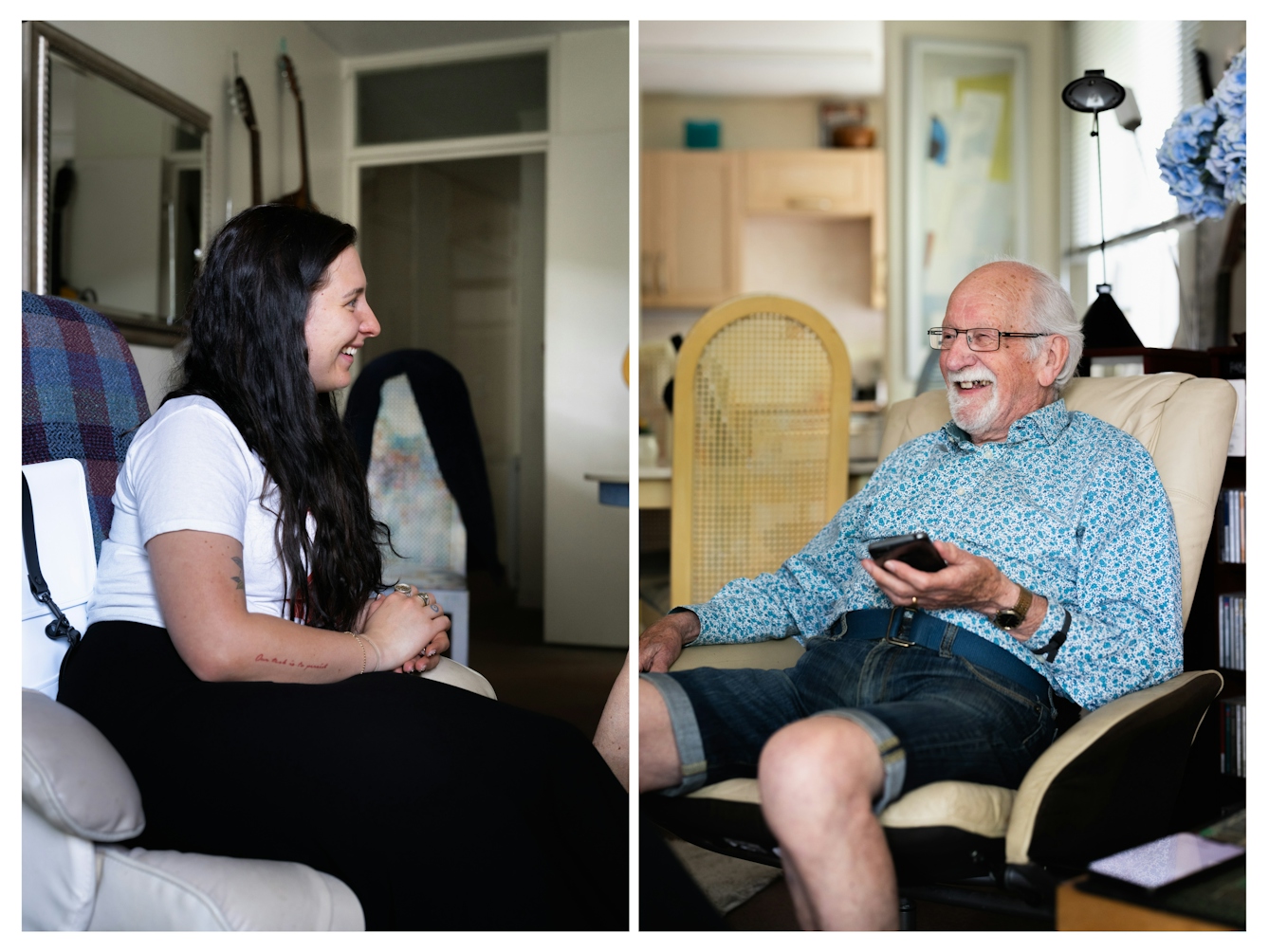
“Tony would have a list of aims for the session ready in his notebook. Things like how to take a photo of his greyhound, Kiki, make a call, or send a text.”
Sitting by his side, I’d show him how to do each task and then ask him to show me himself. He’d be physically slower than me, but he was a fast learner. At the end of our second lesson, he told me: “You’re going to have a colossal impact on my life.” It was this comment that made me realise how important digital inclusion is.
Tony showed me that digital culture often exists in a jargon-filled bubble, one that can exclude and dismiss those who struggle to keep up.
At the end of our second lesson, Tony told me: “You’re going to have a colossal impact on my life.”
Internet access is expensive, and digital exclusion is about affordability as much as it’s about skills. Being locked out digitally doesn't just mean being unable to communicate – it can also make it harder to access support. “As essential services move online, digital access must also be considered an essential provision,” says Sami McLaren from Friends, Families and Travellers.
Social inequality is intersectional, and marginalised communities are at greater risk of being digitally excluded. “Romany, Irish Traveller and nomadic communities already face high levels of digital exclusion,” explains Sami, “yet we’re seeing many essential services increasingly shift towards an online-only approach, such as banking, or requesting repeat prescriptions.”
Internet access and health inequality
According to the Good Things Foundation, people without digital skills are already the most likely to experience health inequalities. Their Online Centres Network takes a hyper-local approach to tackle digital exclusion. They offer “a friendly face, a hot drink and non-judgemental support” in places like community centres and libraries, cafés and pubs.
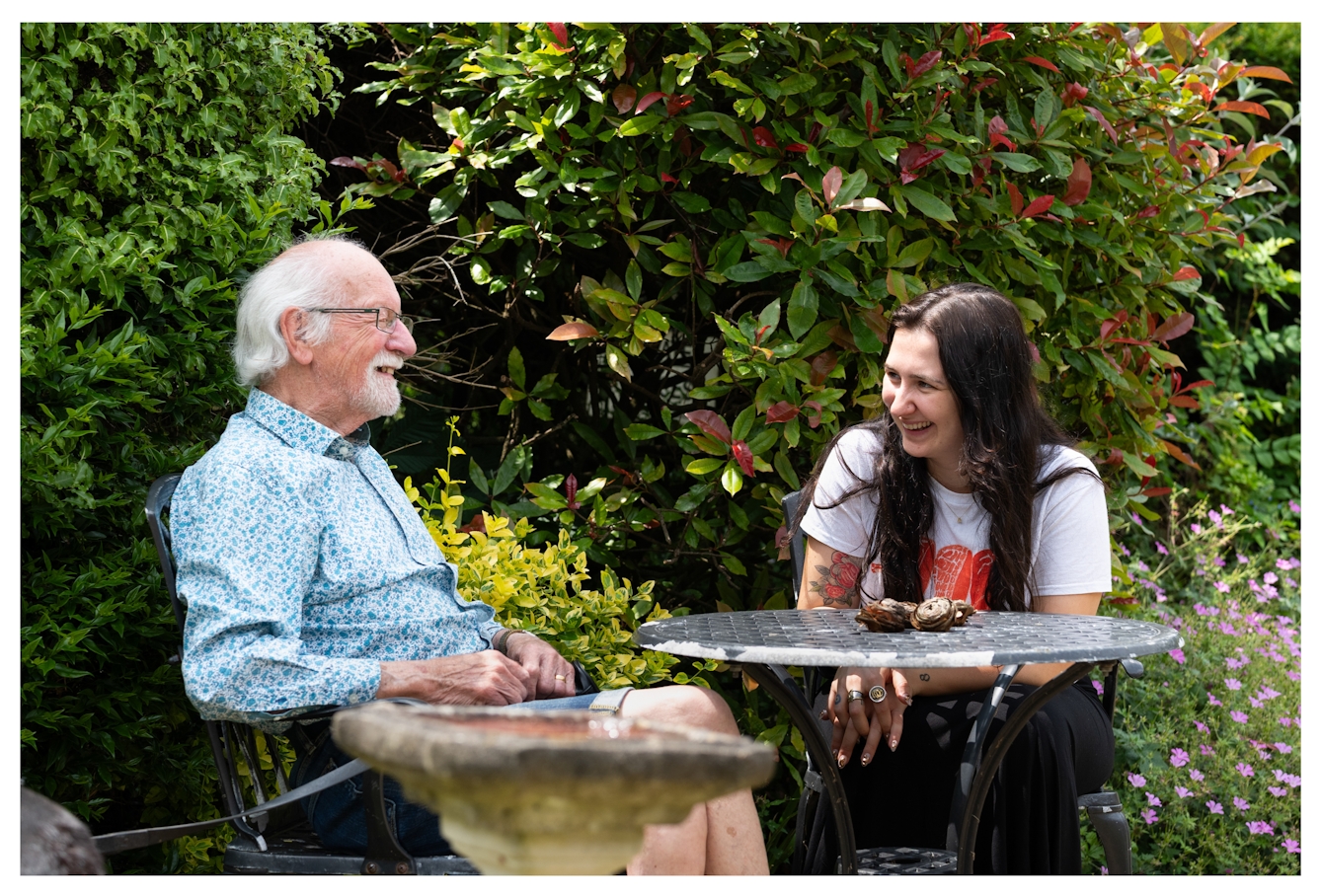
“Being locked out digitally doesn't just mean being unable to communicate – it can also make it harder to access support.”
Meanwhile, AbilityNet has created a series of simple guides explaining how to adapt your device to meet your needs. They explain that “You can search for a specific need (e.g. making text larger) or filter the guides based on your symptoms (e.g. hand tremor) or condition (e.g. dyslexia).”
Ever since I first read Tony’s ad, I’ve been determined to investigate and understand the impact of digital exclusion. I’ve learned as much as Tony has. He can now make calls, text, use Google Maps and check the bus times, while I’m reassessing my own relationship with technology, and learning more about the fallout of the digital age.
After he’d had lessons every week for three months, I asked Tony what first motivated him to place the ad. He summed up what pulls so many of us online: “Communication is vital to me. It’s everything.”
Despite the 63-year age gap, our friendship has blossomed out of Tony’s courage to ask for help. We still have our weekly catch-ups – which we arrange by text – and Tony keeps a list of questions on hand for whenever I come by.
About the contributors
Adele Walton
Adele Zeynep Walton is a Turkish British journalist specialising in politics, global inequality and popular culture, with bylines in the Independent, the i, the Guardian, Refinery 29, Metro, the Big Issue, Dazed, Vice and more. She is also Dazed’s first ever political book columnist. Adele is currently working on her first book.
Steven Pocock
Steven is a photographer at Wellcome. His photography takes inspiration from the museum’s rich and varied collections. He enjoys collaborating on creative projects and taking them to imaginative places.
